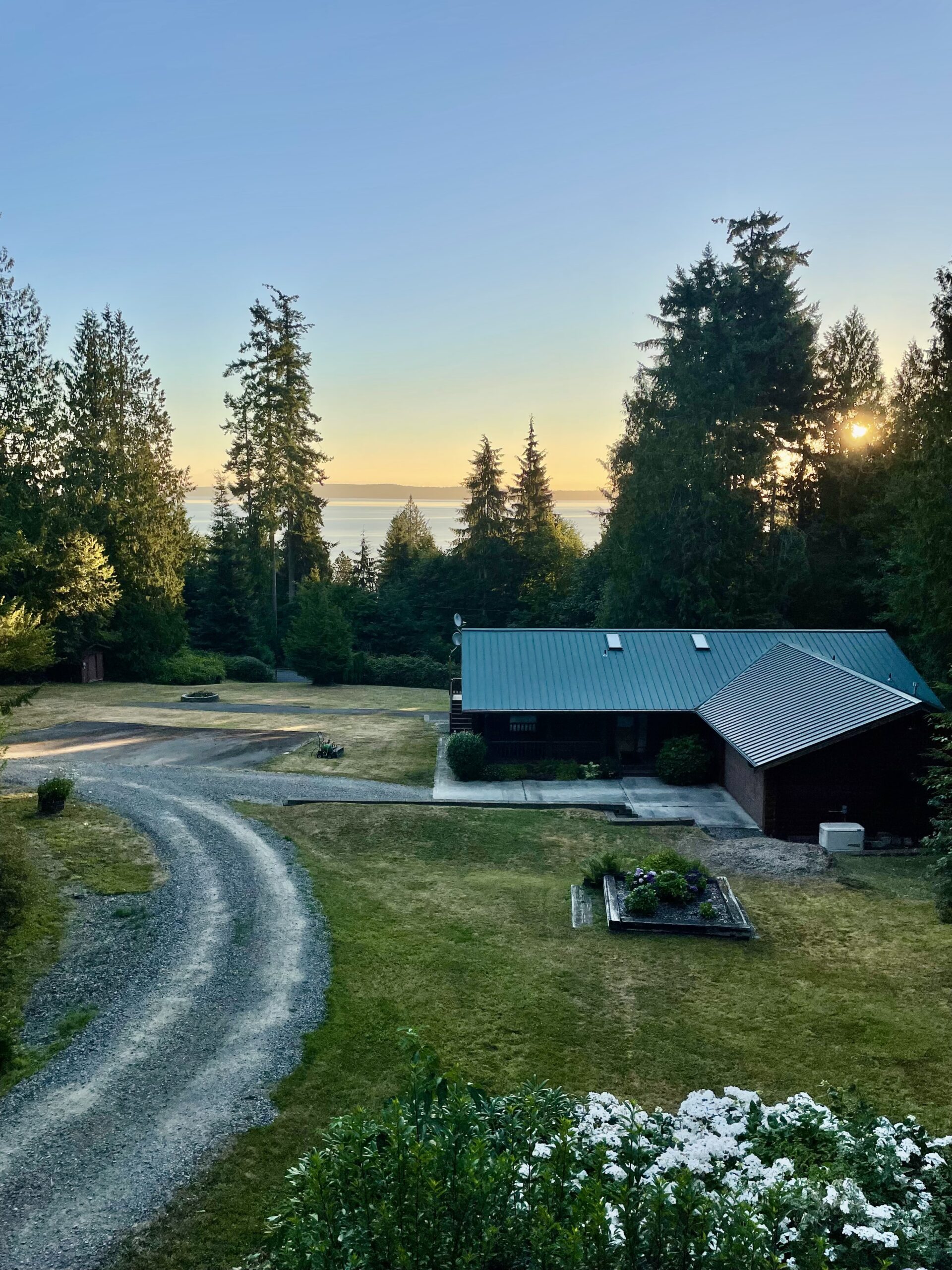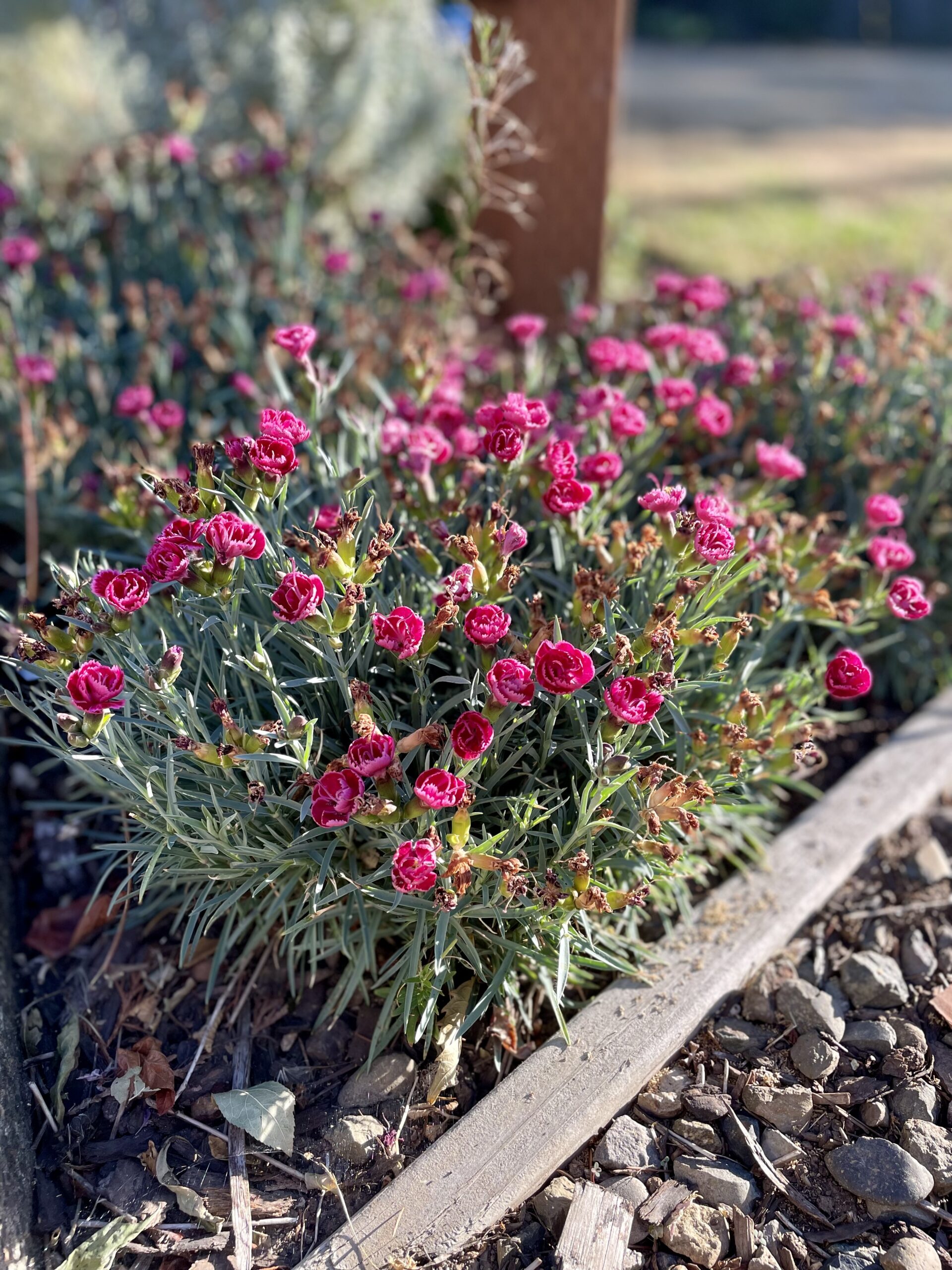Oh, here’s my Sunday post on Monday. Or, was the post last on Tuesday my Sunday post, and I’m now early for next Sunday’s post?
Does it even matter?
I am all wonky and discombobulated, even though I’ve been back home for several weeks now and feel as if I should be back on track with everything.
I am not.
I am still grappling with what season it even is. (Kari made me feel better about this, though I saw her post late because: wonkiness.) Cane goes back to work this week. We tried to cram as much summer into last week as we could, but we couldn’t make it feel like high summer, much as we tried. Leaves are falling. Everything looks like late August (brown, dried up). We can’t hold off the mental shift toward school and the school year. We went to many of our favorite Portland places, but I ended up napping every single day, and then migraine hit me over the weekend.
I can’t get back into the rhythm of food. I have not gotten to eat enough of what I think of as summer food. (We couldn’t get the usual ingredients in our small Louisiana town and I could not cook in a construction zone.) I went to the store and bought far too much, but then we ate out far too much or I was too tired to make meals.
I don’t want it to be fall yet, but I also deeply dislike living in limbo, on the cusp of things. It’s not summer (not mental/emotional summer, anyway) and it’s not fall and I don’t want it to be fall.
I want to feel some kind of normal again. I want to be able to stay awake for an entire day. But last week Rebecca Solnit posted something on Facebook that I’ve been keeping it in mind as I’ve drifted off to sleep more than one afternoon recently:
“If you’re sick or injured and healing or growing a new life inside you or just worn out, please notice that that thing known as ‘doing nothing’ is when you’re doing the utterly crucial and precious work of growing and healing and restoring.”
(I recommend clicking through to read the whole thing.)
Maybe I’m growing a new life of some sort, or maybe I’m just worn out. There’s been a lot this year, most of which I haven’t written about here. In most of the stories, I am a supporting character, not the main character. I find the whole “it’s not my story to tell” tenet hard to wrap my mind around. Maybe I’m not the main character, but I’m still a character. I’m still in the story, and what I think and feel and do within the narrative is mine.
I’m wondering if this–being full of stories I don’t feel free to write freely about–is why I’ve been finding it hard to write here. A comment to my last post prompted me to write a personal response to the commenter, and in writing it I realized that I’d left out important things that might have allowed me to write a post that is more true. Maybe more worthwhile.
But I’m going to let the original post stand. I’m not going to change what I am and am not sharing in a public forum. I might have every right to give my story away, but that doesn’t mean I should.
Last week, I was watering our garden in an effort to stave off the effects of the high heat we’ve been living in. I was in a hurry. I was impatient. I was anxious. I yanked the hose, and I broke off two large branches of a shrub I’d once given up on. It had been all wonky, growing a few measly branches on one side, with the other side of the bush bare. I moved it to its current spot, almost daring it to live. If it died completely there, I figured it was no loss.
It’s not only lived there, but thrived, filling in beautifully. It’s a story that has given me some joy. And then, in one quick moment, I broke off two full branches, returning it to a state of bare lopsidedness.
I was so glad that it was me who did that, rather than Cane. Because it just made me sad. I was glad to be angry with myself, rather than him.
Cane suggested putting the branches in water. Maybe they will sprout roots and we can replant, he suggested, get a new plant out of it. I think that’s not likely, but I did it anyway.
This morning, as I sat here writing these words, the branches were right in front of my face and I noticed something that stopped me:
The branches are flowering. My broken branches. Sprouting tiny little flowers. Not the roots we hoped for, but flowers we didn’t even know to hope for.

Isn’t life often like that? There’s almost always a gift of some kind in discomfort. In wonkiness, in broken things. Maybe I’ll dream about those when I take my nap later today.
PS:
I am continuing my adventures in pie:

This one is whiskey-peach. It both looks and tastes better than the last one. My bottom crust is a little too dense, but the top crust is lovely.
I’ve also been consuming books. A few highlights from last week:


Pie is comfort food, and these were comfort reads. They did not stretch or challenge me in any way. Books by women a lot like me, most likely mostly for women a lot like me.
Now this one–this one is a different kind of story:

I cannot figure out an elevator pitch for it. It’s academic, it’s poetic, it’s fierce. It’s about cooking, food, and women. Maybe I’m starting to wake up again.




















